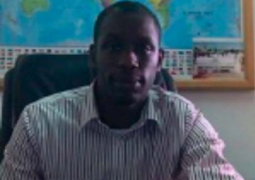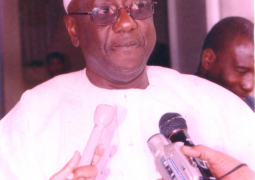
Nick Clegg, the new Deputy Prime Minister of the Conservative-Liberal Democrats coalition government has announced the 'scrapping' of the controversial National Identity Card scheme in a vigorous electoral reform speech.
Addressing a group of students in north London in the presence of journalists, Clegg, who is very popular amongst students across the country maintained the discarding of the 'identity card scheme' and 'second generation biometric passports' will in fact take place.
The Deputy Prime Minister who had criticised the introduction of the ID cards while in opposition describing it as 'expensive and unnecessary;' costing tax payers tens of millions of pounds, now said the scheme will be 'scrapped'.
Clegg noted that the government will as well be removing 'limits on the rights to peaceful protest' and that 'internet and email records' will not to be held ?without reason' any longer.
Equally Clegg outlined that closed-circuit television, commonly known as CCTV to be properly regulated and also stood his ground against the storage of 'innocent people's DNA'.
Most interestingly, the new Deputy Prime Minister also outlined that voters will be given powers to 'remove? their members of Parliament for abuse of office.'
Clegg described by many respected legal experts here as a human rights defender maintained that he is against the deportation of 'terrorist suspects' if there is a 'serious risk' that such suspects would be 'seriously mistreated, tortured or killed' back in their home countries.
He said: 'We, like any other civilised nation, abide by the very highest standards of human rights.'
Lamenting on the reforms, Clegg also asserted that such change will be 'most significant programme of empowerment by a British government since the great enfranchisement of the 19th century... the biggest shake-up of our democracy since 1832...'
Even though his new Conservatives allies had vowed that they would 'review' the Human Rights Act incorporated in the British law, and 'replace' it with a UK 'Bill of Rights', Clegg stressed that a planned commission into the future of human rights legislation 'would not end up' with the principles of the European Convention on Human Rights (ECHR) being 'abandoned in Britain'.
It is interesting to note that many of the Liberal voters recent held a demonstration reminding Clegg not to 'forget' his election promise and pledge. Some of his supporters expressed scepticism the Liberal joining the Conservative who have a 'different' manifestos.
During the demonstrations, Clegg came out responding using a loud speaker and told his supporters that he will not step-back from his promises.
Mostly importantly, Prime Minister David Cameron, with Clegg in a joint press briefing made it clear that they can work together in the interest of the country and that the deference in their manifestos will not deter them doing the 'right thing' for the nation.
Officials from both parties are currently holding key government position, however the Liberals maintained that such position should not be seen as an obstacle but instead an opportunity to present the changes required.
Clegg told the nation that his proposals also include how to 'decentralise power' in Britain, and also promised that a referendum would be held for that matter.
The Deputy Prime Minister also outing his reform programme maintained that he would try and introduce an 'elected second chamber' of Parliament.
Meanwhile, the leadership contest for the former ruling Labour party has started. The party is looking for a new leader since former Prime Minister Gordon Brown tendered his resignation and asked the party to search for a successor.



